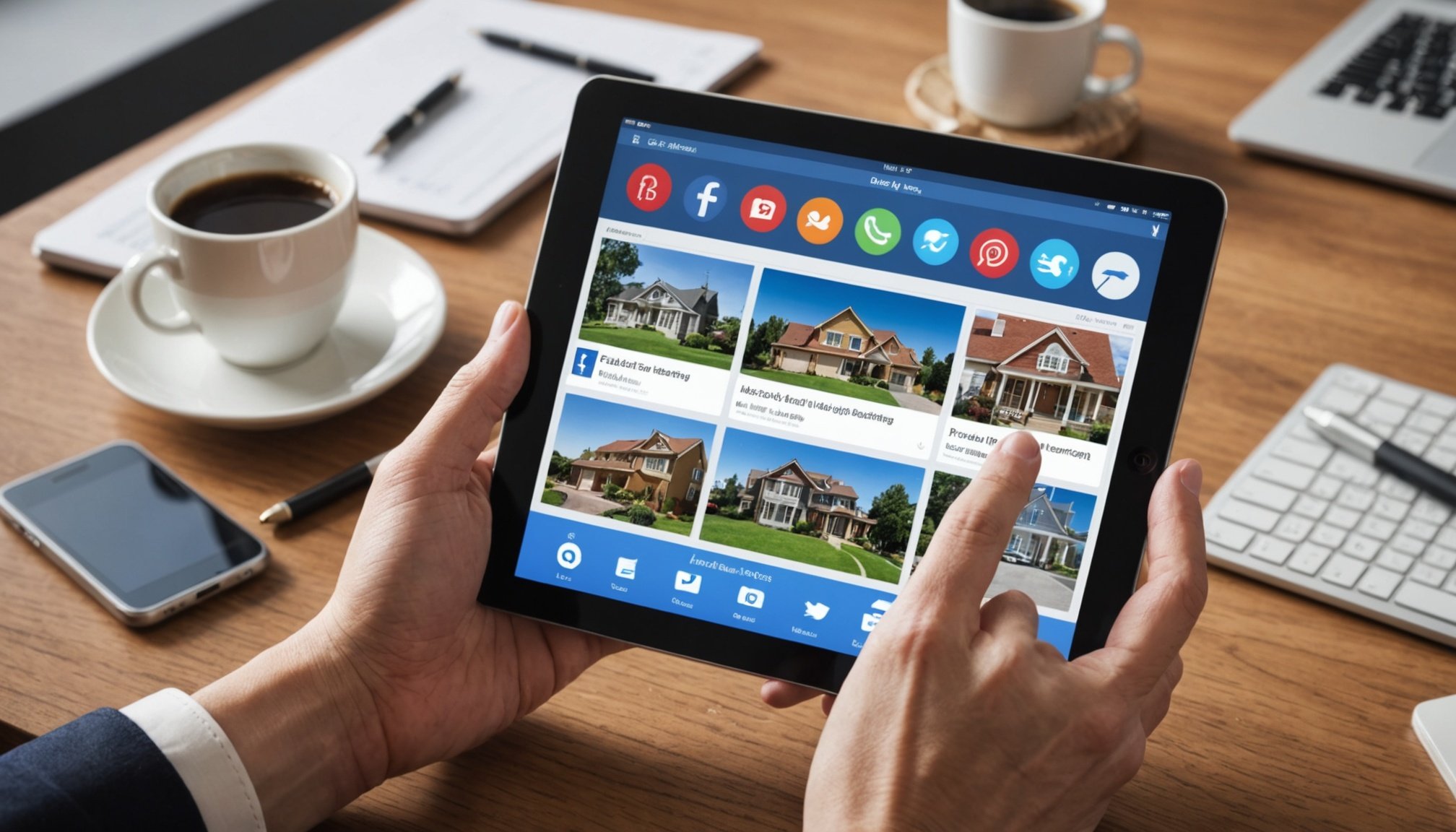In the ever-evolving domain of real estate, social media has become a pivotal tool for property marketing. As realtors and agents navigate this digital landscape, mastering platforms like Instagram and Facebook can significantly amplify their marketing strategies. The potential to reach a wider audience and establish a strong brand presence is unparalleled. In this article, we explore how harnessing the power of social media can elevate your property marketing efforts, ensuring your listings aren’t just seen but truly stand out.
Understanding Social Media Platforms for Real Estate
When delving into social media for real estate marketing, it is essential to understand the nuances of different platforms. While each has its unique features, they all offer tools to enhance your business presence.
In the same genre : How do property taxes differ between residential and commercial properties in the UK?
Facebook: As one of the most popular social media platforms, Facebook provides an extensive reach and diverse engagement tools. Here, realtors can create dedicated business pages, enabling them to post content about new listings, market trends, and community events. Facebook Ads, with their detailed targeting options, allow you to reach potential buyers based on demographics, interests, and behaviors.
Instagram: This visually-driven platform is perfect for showcasing property aesthetics. Use high-quality images and videos to bring listings to life. Instagram Stories and Reels offer creative ways to present property tours, giving audiences a virtual glimpse of a property’s charm. Hashtags broaden your reach, tapping into a wider real estate community.
Also read : What are the best practices for conducting a property viewing in the UK?
LinkedIn: While primarily a professional networking site, LinkedIn is a valuable tool for building brand credibility. Share informative posts on market insights, investment tips, and community developments to position yourself as an industry expert.
Engaging on these platforms strategically can set a solid foundation for a thriving real estate marketing campaign.
Crafting Engaging Social Media Content for Real Estate
To make a mark on social media, crafting engaging and relevant content is crucial. Content should not only highlight the properties but also resonate with potential buyers.
Visual Storytelling: In the realm of real estate, images often speak louder than words. Capture the essence of a property with high-resolution photos and videos. Highlight unique features, like a sunlit living room or a cozy backyard. Utilize Instagram Stories to create virtual tours, allowing audiences to explore spaces from the comfort of their homes.
Informative Posts: Share insights on the local property markets or tips for first-time homebuyers. Such posts position you as a helpful resource, building trust with your audience.
Engagement and Interaction: Beyond posting, interaction is key. Encourage engagement by asking questions, hosting polls, or running contests. Respond promptly to comments and messages, showing your audience that their input is valued.
Consistency: Regularly scheduled posts keep your audience engaged and coming back for more. Consistent content builds familiarity and strengthens your brand identity over time.
By focusing on quality content that reflects your brand’s values, you’re not just showcasing properties, but also creating a connection with your audience.
Leveraging Social Media to Build a Real Estate Brand
Establishing a strong brand presence on social media is vital for real estate success. It’s about more than just selling properties – it’s about creating an identity that potential buyers recognize and trust.
Authentic Branding: Your social media platforms should reflect who you are as a real estate agent. Share your story, values, and what sets you apart from others. Authenticity cultivates trust and makes your brand relatable.
Content Strategy: Develop a cohesive content strategy that aligns with your brand’s vision. Use a mix of property listings, client testimonials, market updates, and lifestyle content to keep your feed diverse and interesting.
Visual Identity: Maintain a consistent visual theme across all platforms. This includes colors, fonts, and styles that are synonymous with your brand. A recognizable visual identity makes your posts instantly identifiable.
Networking and Partnerships: Social media is a two-way street. Collaborate with local businesses or influencers to expand your reach. Networking within the real estate community can open doors to new opportunities and partnerships.
By nurturing a strong social media presence, you’re not just marketing properties; you’re building a brand that resonates with your target audience.
Measuring the Impact of Social Media on Property Marketing
While engaging content and a solid brand presence are crucial, measuring the impact of your social media efforts is equally important. Understanding this impact allows for informed decisions and strategy adjustments.
Analytics Tools: Most social media platforms provide analytics tools that offer insights into post performance, audience demographics, and engagement rates. These metrics help gauge what content resonates most with your audience.
Lead Generation: Track the number of leads generated through social media interactions. Whether it’s inquiries via direct messages or clicks on property links, understanding these metrics can highlight the platform’s effectiveness.
Engagement Rates: Monitor likes, shares, and comments to assess audience engagement. High engagement rates indicate that your content is hitting the mark and keeping your audience interested.
Feedback Loop: Encourage followers to share their thoughts and experiences. Feedback can provide valuable insights into what your audience finds appealing or lacking.
By continuously measuring and analyzing your social media performance, you can refine your strategies, ensuring your property marketing efforts are both impactful and efficient.
Social media has redefined the landscape of property marketing, offering realtors and agents unprecedented opportunities to engage with their audience. Mastering platforms like Instagram and Facebook can transform your marketing efforts, from creating engaging content to establishing a robust brand identity. By understanding the dynamics of social media and measuring its impact, real estate professionals can navigate this digital realm effectively. As we look to the future, embracing these trends will be key to unlocking the full potential of property marketing in the digital age.











